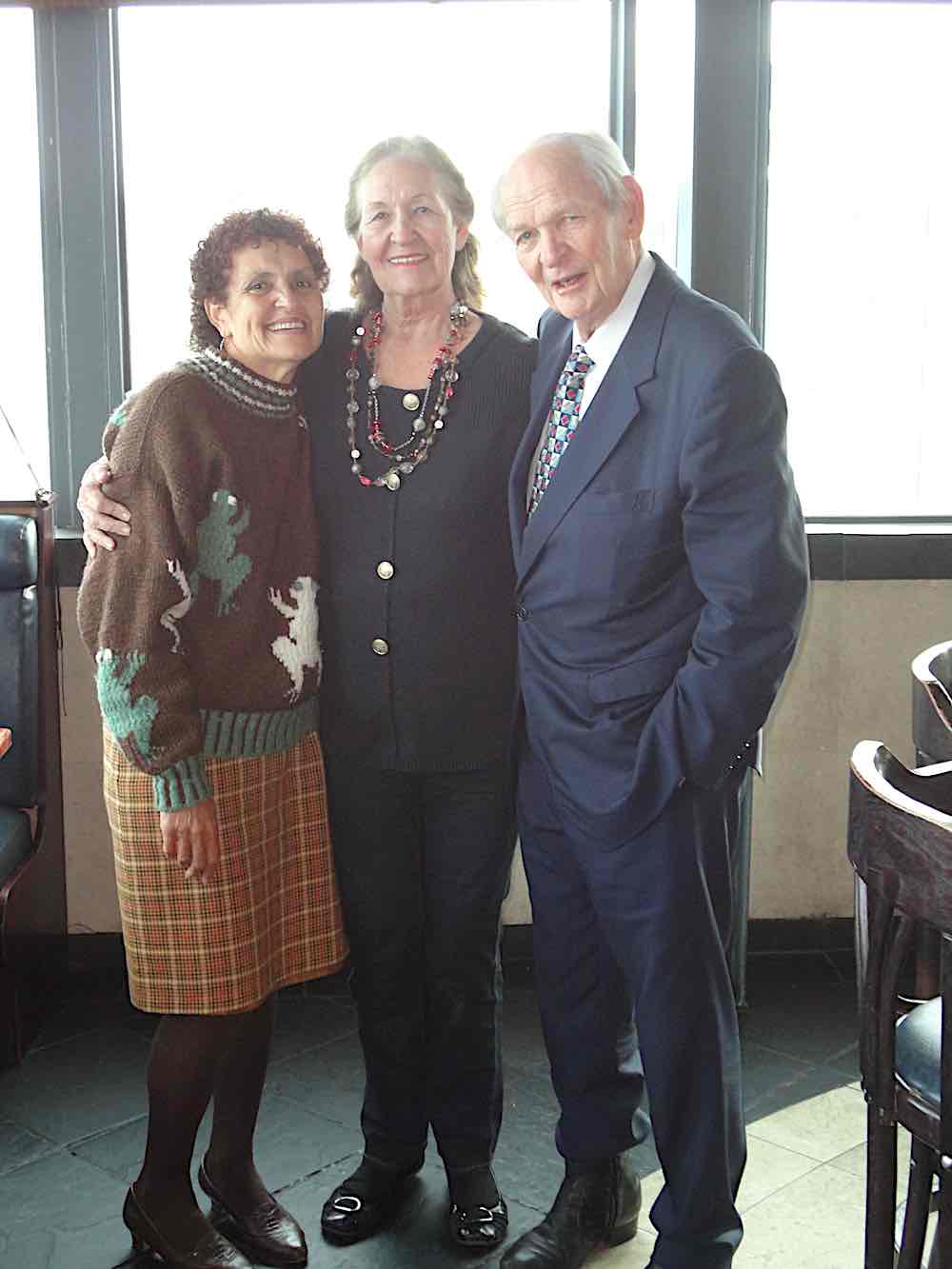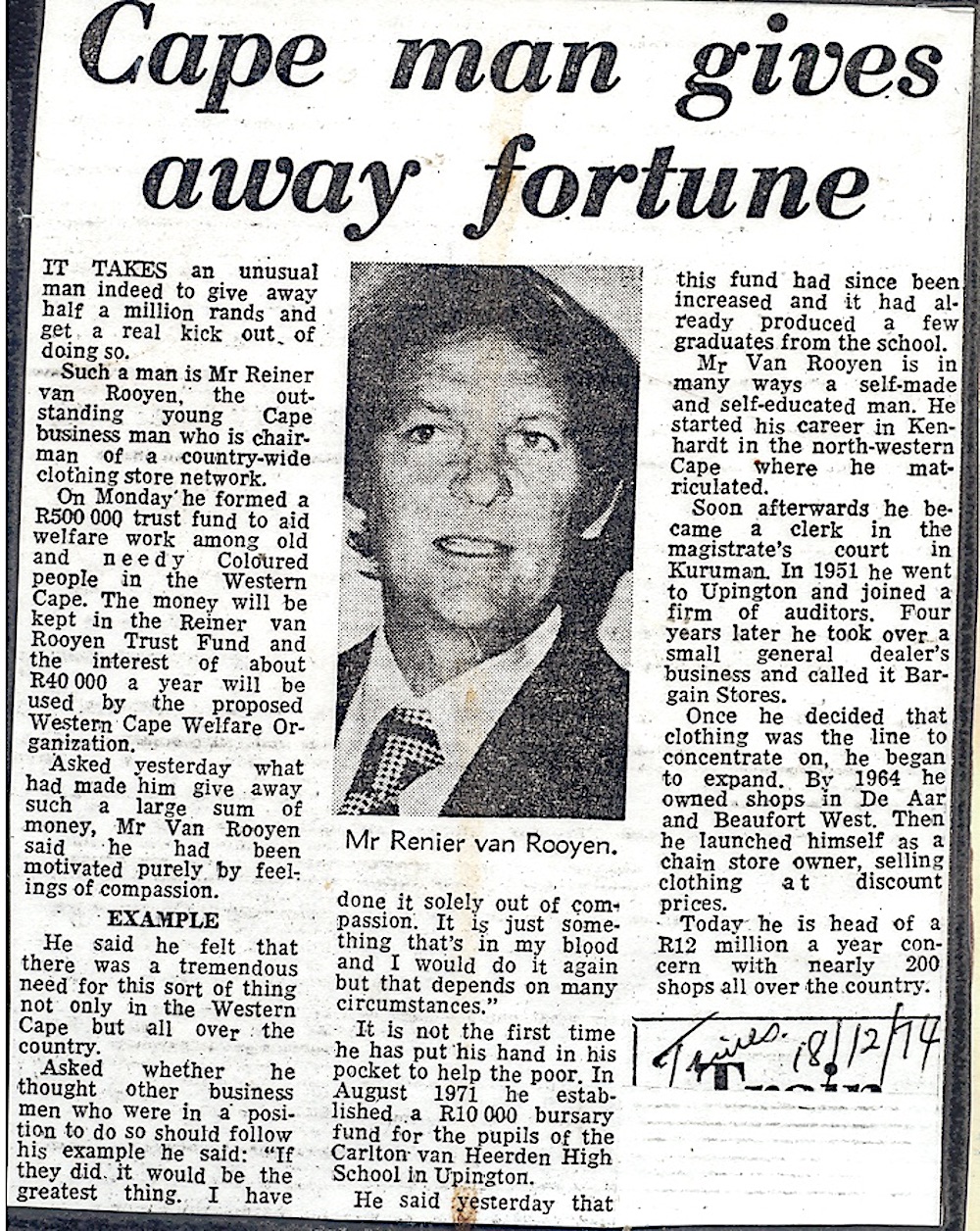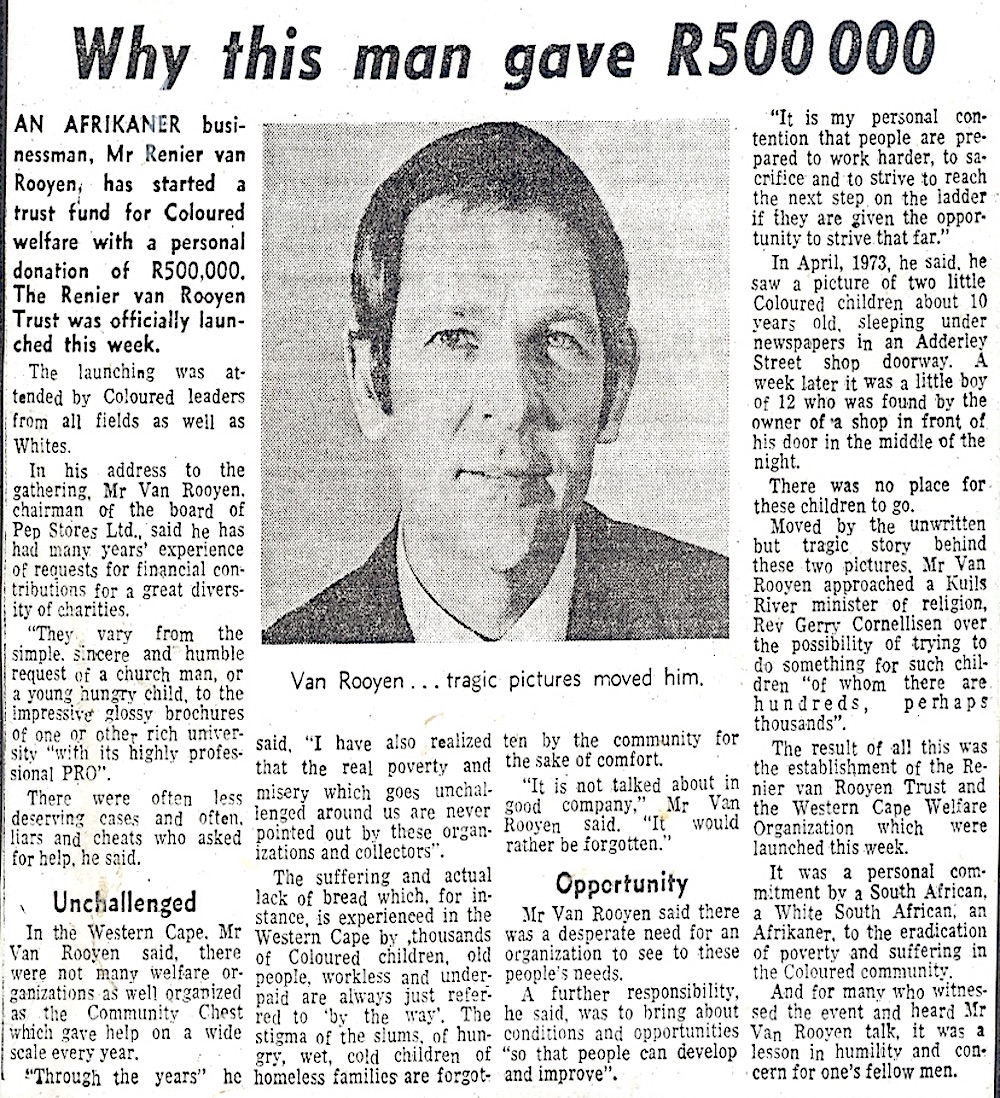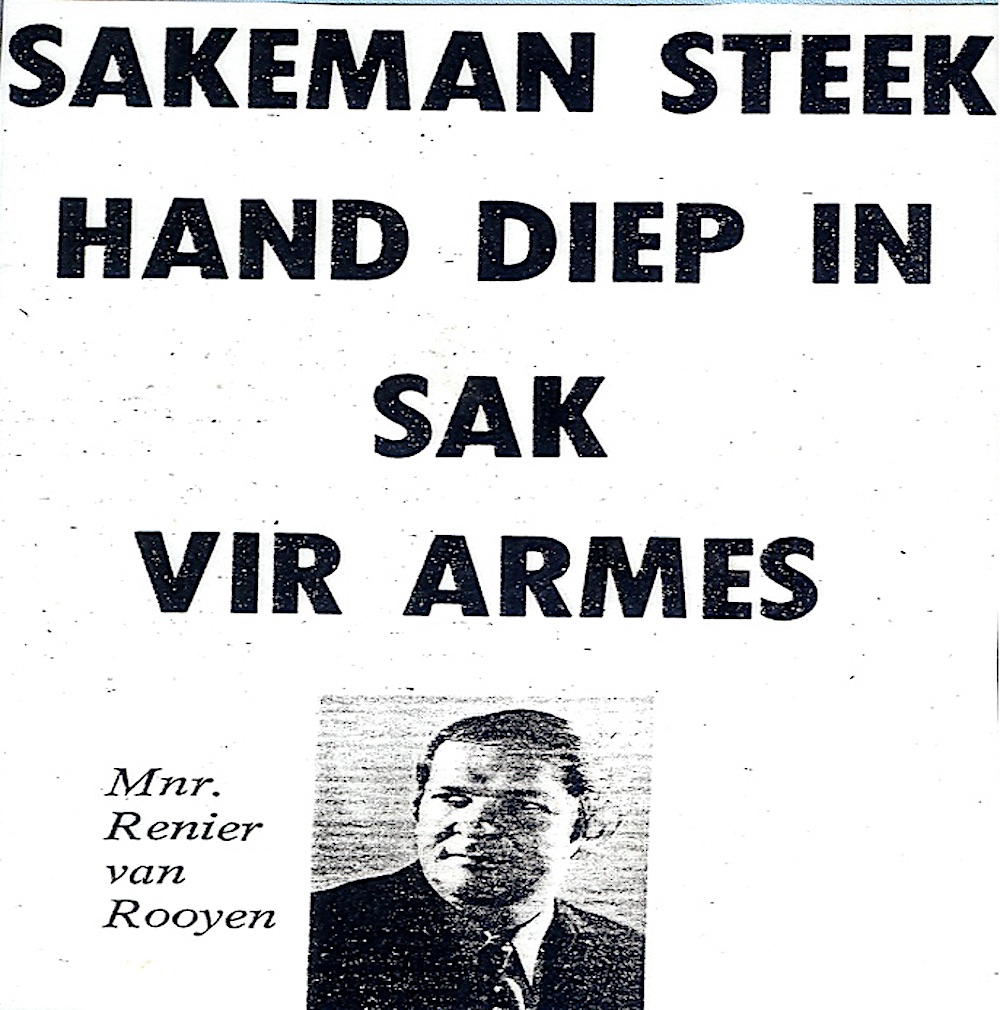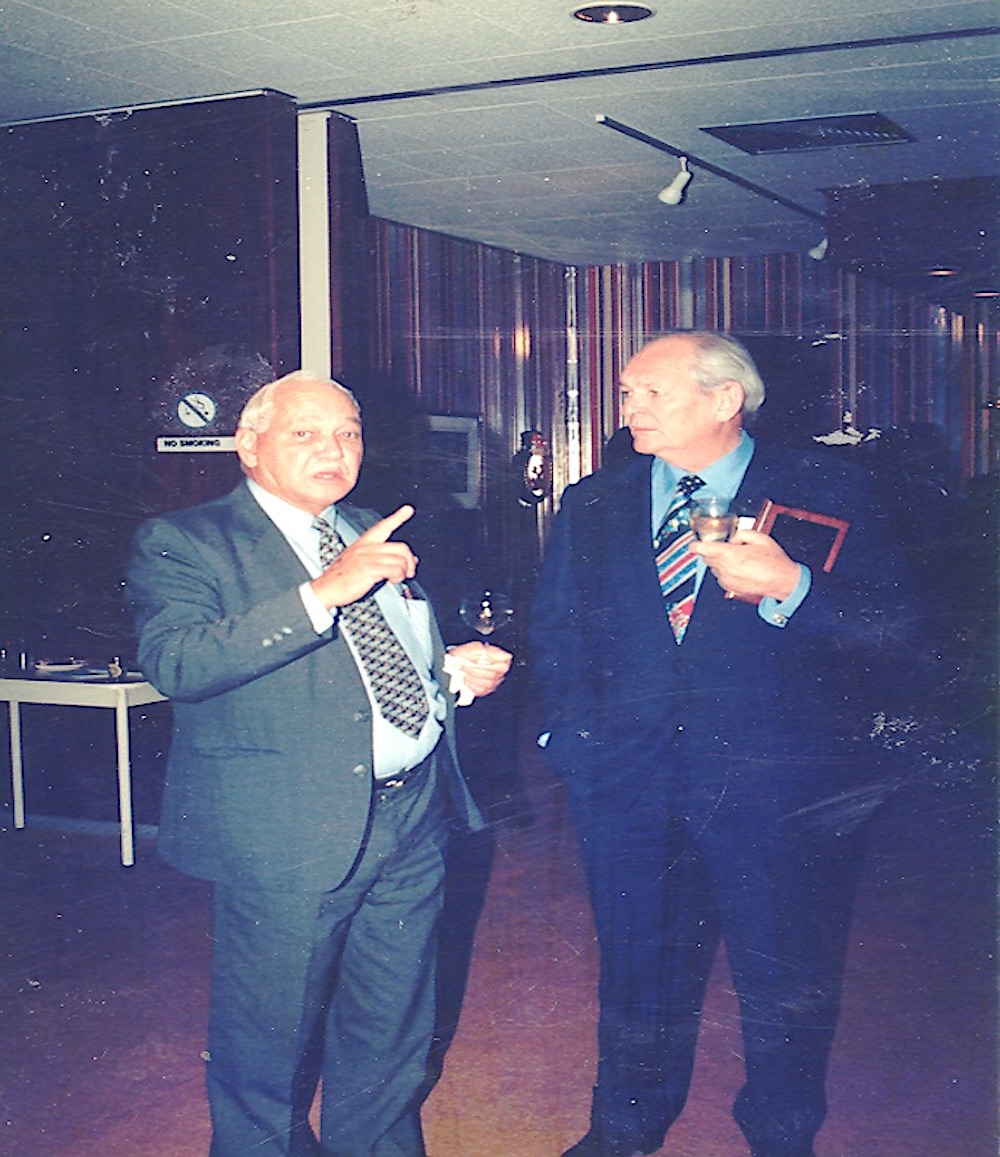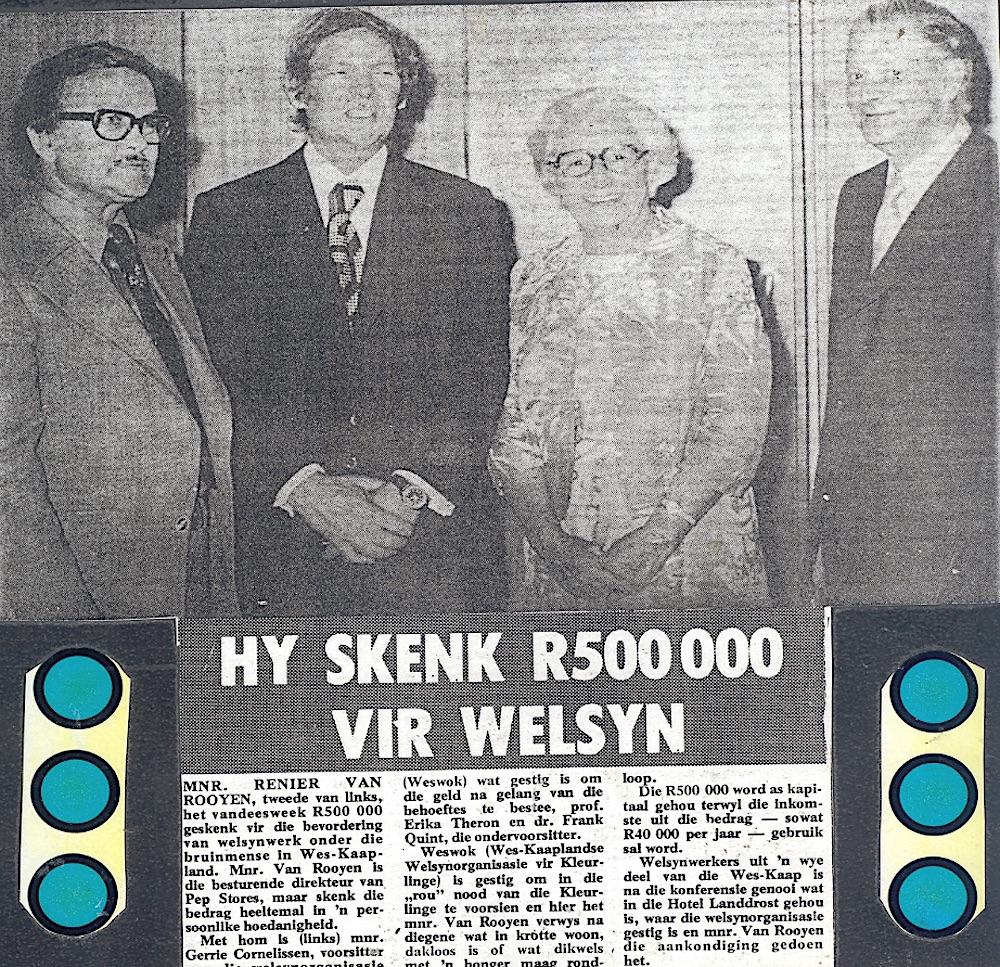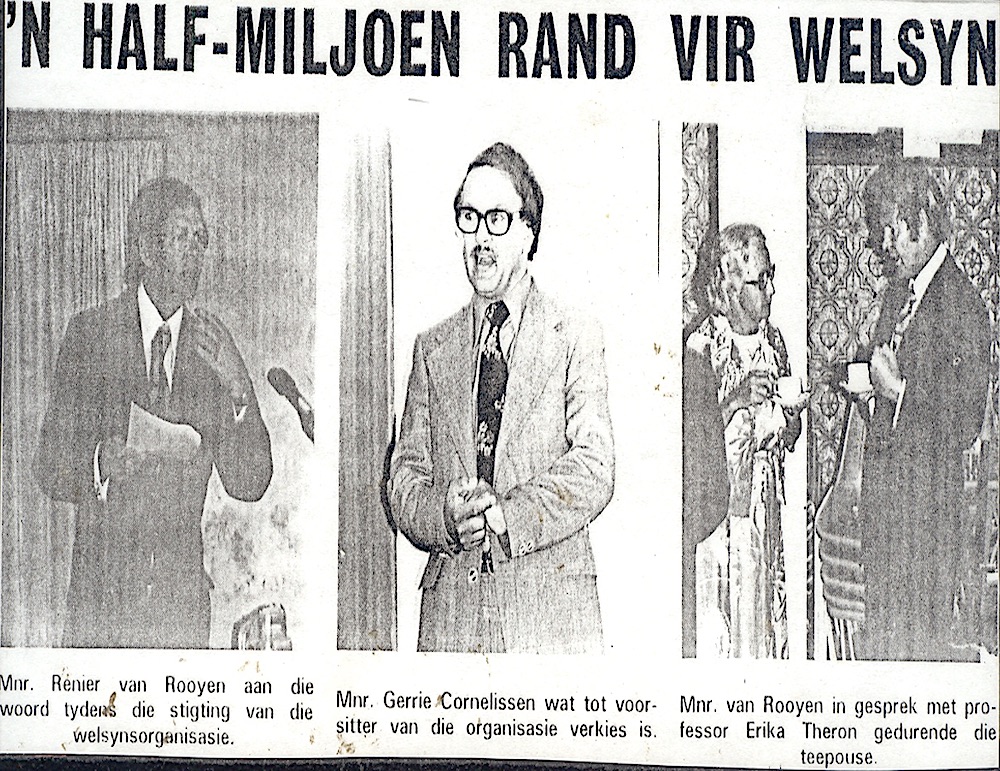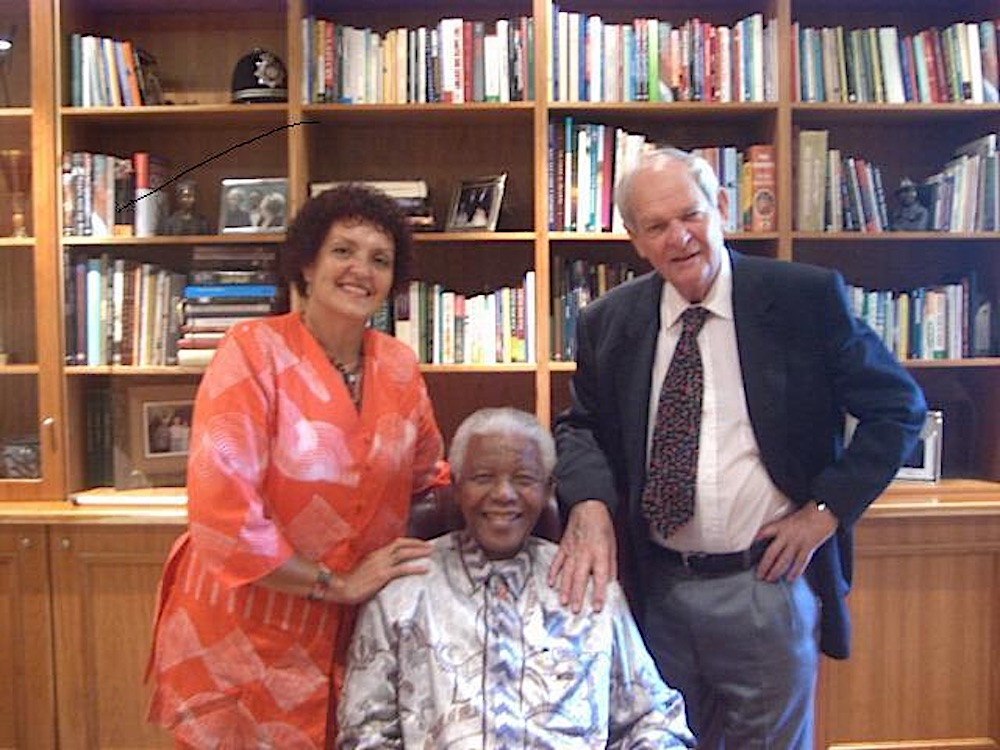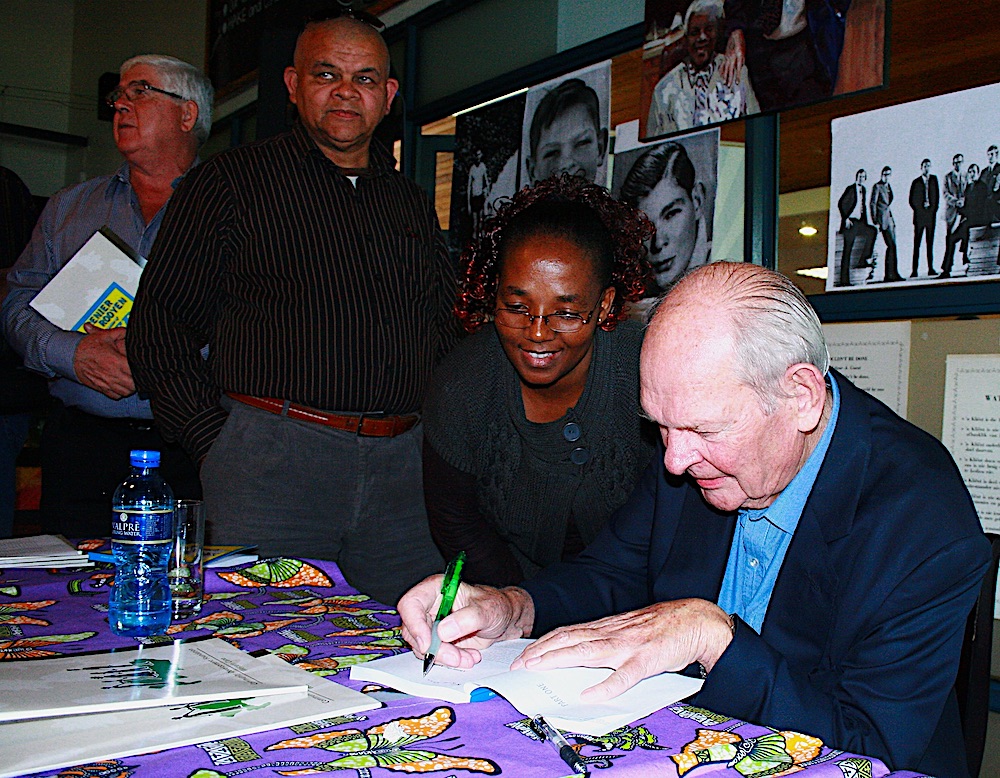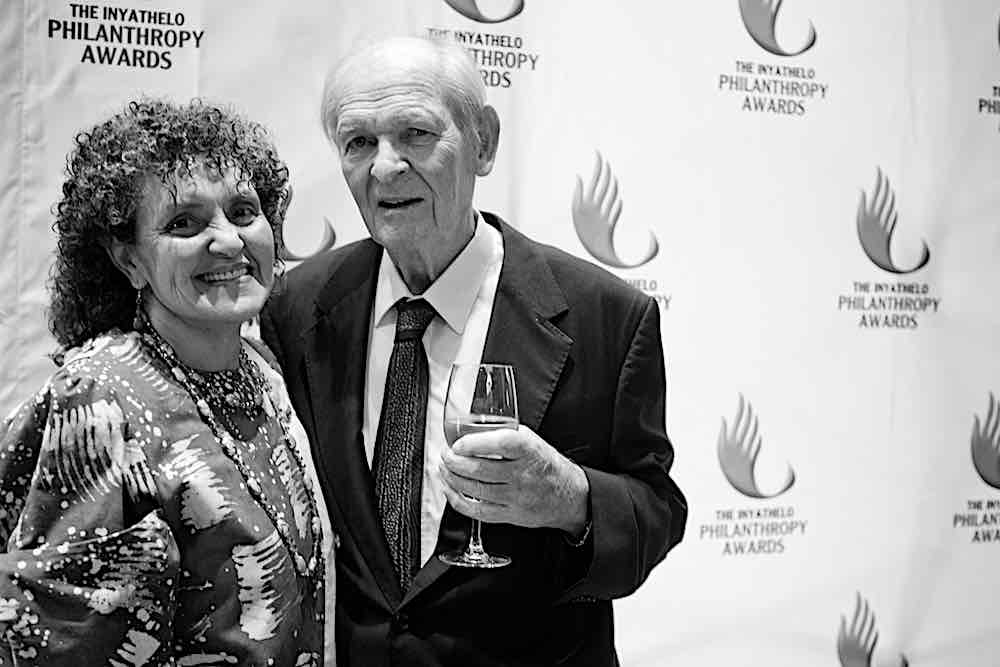
Our Story
The FCW (Foundation for Community Work), an NPO of longstanding started with our Patron Renier van Rooyen, whose endowment of R500 000 during the turbulent apartheid years of the seventies, gave birth in 1974 to a philanthropic entity of note. Thanks to a planning grant of R1.3m from the Ford Foundation to support an organisational and operational rethinking and renewal process of the FCW, the NPO with a track record of more than 20 years in the field of development and the incubator of the process, the Foundation for Community Work Support Trust (FCW ST) was established in 2003 to manage research into possible sustainable future scenarios of the FCW. The in-depth consultative processes from May 2003 to April 2005 affirmed the decisions taken by the trustees and strategic partners at the end of 2004, where it was decided that FCW should explore the path of becoming a fully functional and relevant Community Development Foundation. The Ford Foundation, in recognising work done during the planning grant phase, approved a three-year implementation grant to assist in the establishment of the Community Development Foundation in the Western Cape (CDF WCape). The Foundation works alongside communities to strengthen local and community-based organisations (CBO’s) by providing guidance, technical support and community grants. The Foundation is set out to play a mediating and facilitating role by strengthening relationships and building partnerships within communities, with donors and other development players. This process encourages and recognises the contributions of the community members who either provide financial assistance or contribute by giving their time and energy. By working together, we can make our communities in the Western Cape the best place to live, work and grow. From humble beginnings, CDF WCape navigated its way through uncharted waters, taking small steps from its first offices in a loft on a farm in Bergvliet (2002 to 2010) and since then to its current offices in Wynberg. Guided by its Vision, Mission and Theory of Change, the Foundation is Hope aspired and driven. It is hope that keeps the Foundation insightful and agile.
A gratitude bouquet to our Patron Renier Van Rooyen
Throughout his life Renier had displayed compassion and empathy for those less fortunate. In an interview for his biography, Renier recalled how the right moment presented the idea to act.
“It must have been two in the morning when I drove home through the city and saw very small children sleeping under newspapers in a doorway. The sight made me sad and I felt we cannot allow this to continue – we must do something, in fact I must do something!”
True to his word and conviction and guided by his cornerstones of Faith, Positive Thinking, Hard Work, Enthusiasm and Compassion’ Renier in 1974, launched the Renier van Rooyen Trust and the Western Cape Welfare Organization (Weswok); however not without sacrifices as he and his wife Alice had to delay personal plans and aspirations.
Thank you for Keeping the flame of HOPE alive
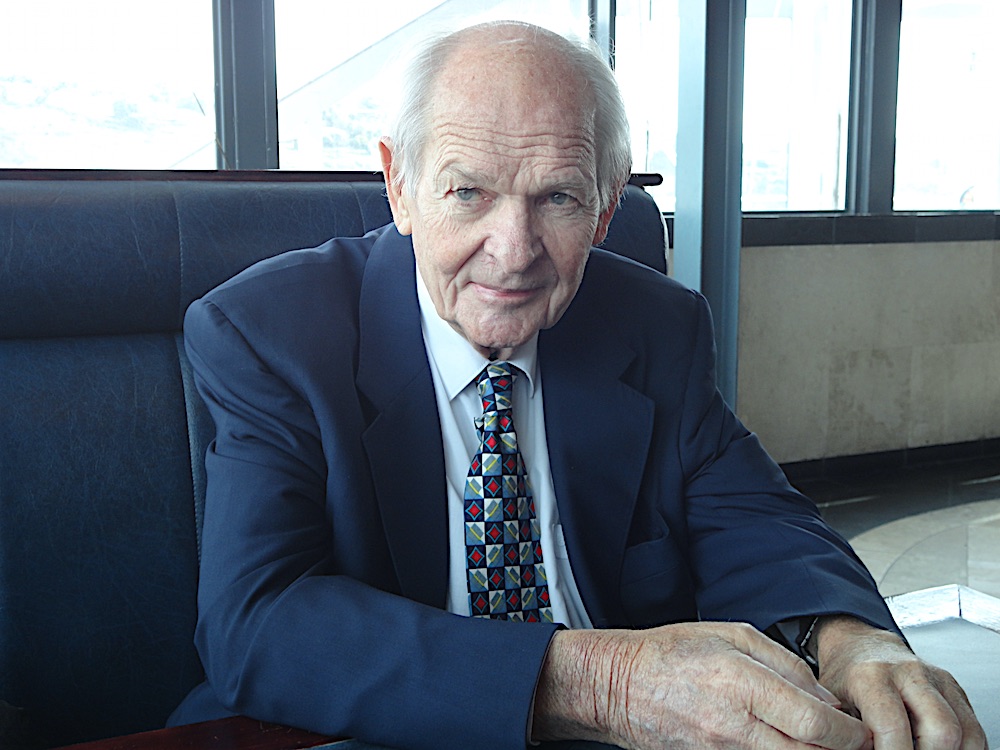
Insightful agility is Instilling HOPE
The FCW (Foundation for Community Work), an NPO of longstanding and based at the Athlone Early Learning Centre in Kewtown, will most probably be remembered by many for specific historical reasons: the generosity of one man, our Patron Renier van Rooyen, whose endowment during the turbulent apartheid years of the seventies, gave birth in 1974 to a philanthropic entity of note, one of a few to survive the transition to democracy more than twenty years later; the bombing by the CCB in 1989; leadership by Dr Franklin Sonn, Dr Lionel Louw and others; and the role and impact of community participation in building this reputable organisation on the Cape Flats with its core focus on early childhood development. Taking the lead once again, this time by shifting the social service paradigm to community philanthropy and development, a philanthropic institution that is agile and nimble was envisaged for the Western Cape. Thanks to a planning grant from the Ford Foundation to support an organisational and operational rethinking and renewal process of the FCW, the NPO with a track record of more than 20 years in the field of development and the incubator of the process, the Foundation for Community Work Support Trust (FCW ST) was established in 2003 to manage research into possible sustainable future scenarios of the FCW and the director of FCW was seconded to lead this process. An interim Board, chaired by the chairperson of FCW, and chosen for specific skill sets and expertise, passion and commitment, was established to mediate, facilitate and govern the institutional building process. The FCW ST began establishing its identity. It had constituted, was a legal entity registered as a Trust, NPO and PBO with Tax exemption status. The planning grant of R1.3m from the Ford Foundation was matched against an endowed fund which had been received from Renier van Rooyen, a lifetime resident of the Western Cape and a committed philanthropist. He said: “I have availed myself to help the director with fundraising initiatives. Where possible and applicable, money raised will go into the endowment fund, where the capital is invested and the interest or capital growth is used for charitable purposes. We are in the business of grantmaking and need to strengthen our grantmaking pool.
Our aim is to over time strengthen the endowment fund and the Renier van Rooyen fund is providing that base for a sustainable source of financial support in perpetuity”. Other than the extensive literature review and robust networking, a travelling grant from the National Development Agency (NPA) made our first educational visit to the Kenyan Community Foundation possible. The in-depth consultative processes from May 2003 to April 2005 affirmed the decisions taken by the trustees and strategic partners at the end of 2004, where it was decided that FCW should explore the path of becoming a fully functional and relevant Community Development Foundation. This decision was however not supported by the staff of FCW. The idea of a community foundation was a foreign concept, leaving them too uncertain and alienated from the current status of FCW. The end result was retention of the two structures whilst several strategic activities were implemented to transition the FCW ST from the Athlone-based institution to a fully- fledged and independent Community Foundation. The Ford Foundation, in recognising work done during the planning grant phase, approved a three-year implementation grant to assist in the establishment of the Community Development Foundation in the Western Cape (CDF WCape. Following the incubation period (planning and implementation), the Charles Stewart Mott Foundation came on board with four, two-year general purpose funding cycle grants (largely focusing on setting the parameters for community outreach and programming work). Since then funding and technical support were solicited from a range of other partners: The Global Fund for Community Foundations supported the Foundation’s Youth Civic Engagement Programme and the Listening for Burning Issues initiative, whilst Legal Wise, the Department of Social Development, the Corporate sector and friends of the Foundation (local giving) gave diversity to the funding base. Grounded within community and with a clear vision and mission in place, the period of consolidation began with the focus on institutional building and systematic programming.
Board and governance strengthening was emphasized, resulting in a skilled board that while small in numbers, was large in output, covering legal, marketing, financial and human resources aspects with oversight rather than a micro-management responsibility. During this period informative and insightful visits to community foundations on the Continent included, the Uthungulu Community Foundation, the Greater Rustenburg Community Foundation and a second visit to the Kenyan Community Development Foundation. A weeklong training session in Belfast Northern Ireland introduced the concept of Youthbanks and a seminar held in Uganda increased our conceptual understanding and knowledge of philanthropy. The Synergos Institute was another key interlocker in the philanthropy space, creating peer learning opportunities and travelling scholarships for learnerships and seminars in the Global South, US and Canada. Today the Community Development Foundation Western Cape is an agent for change, facilitating, connecting and guiding development work from the ground up. The Foundation works alongside communities to strengthen local and community-based organisations (CBO’s) by providing guidance, technical support and community grants. The Foundation is set out to play a mediating and facilitating role by strengthening relationships and building partnerships within communities, with donors and other development players. This process encourages and recognises the contributions of the community members who either provide financial assistance or contribute by giving their time and energy. By working together, we can make our communities in the Western Cape the best place to live, work and grow. From humble beginnings, CDF WCape navigated its way through uncharted waters, taking small steps from its first offices in a loft on a farm in Bergvliet (2002 to 2010) and since then to its current offices in Wynberg. Guided by its Vision, Mission and Theory of Change, the Foundation is Hope aspired and driven. It is hope that keeps the Foundation insightful and agile.

